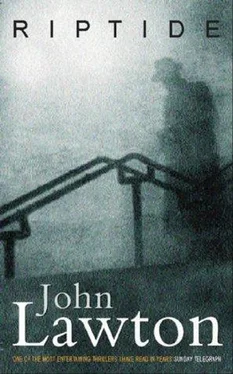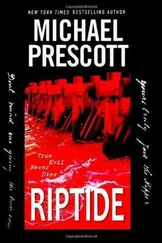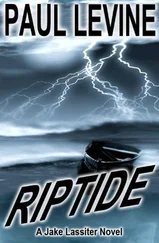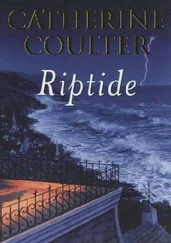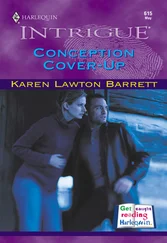A new doctor examined his wound, then said, ‘I never thought I’d see the day I’d be treating a German here.’
‘Austrian,’ said Stahl, the first word he had spoken.
‘Difference is there?’
‘What do you think the Anschluss was? A day trip?’
This had shut the man up-and Stahl had not privileged him with the truth, that he had been in the Fuhrer’s entourage as they swept into Austria and that his people-Stahl’s as well as Hitler’s-had lined the streets and cheered and cheered at their own conquest. Days later, in Vienna, when the new regime had begun to make its mark, he found Storm Troopers standing over a group of Jews in the street. They were scrubbing the paving stones with brushes. Other
Austrians stood around and watched. Stahl had looked for faces he knew among the crowd and found none. Then one of the Jews had looked up from the gutter and he and Stahl had recognised one another.
Now, Stahl looked up and recognised Captain Cormack.
‘I must be slipping. I didn’t hear you come in.’
‘You’re among friends, for the first time in years. Maybe you can afford to relax,’ Cormack said.
Stahl eased himself up on the pillows to be more level with Cormack, who had propped himself against the mattress at the foot of the bed.
‘Who was he?’ he asked.
‘One of ours, I’m afraid. You were right about that. Frank Reininger, a colonel in US Intelligence at our embassy here. I’m as surprised as you are. He was pretty close to being the last person I suspected. Known the man since I was a teenager.’
‘We’re both speaking of him in the past tense. Is he dead?’
‘Yes. I know it might have been useful to get him alive. But I can see why you didn’t take chances. That last shot to the head killed him outright. If it hadn’t, who knows-it could be both of us stretched out in the morgue.’
Stahl said nothing. He hadn’t fired to the head. He hadn’t had the chance. Cormack said, ‘The British are waiting. You know that, don’t you?’
‘Of course. Let me wash and eat something and then I’m theirs. After all, I’m their prisoner.’
‘They’re calling you their guest.’
‘And Hitler called the Anschluss a “reunification”. We’re in a war of words. Meaning was the first casualty.’
‘A couple of hours?’ said Cormack.
‘Yes. I’ll be ready.’
Stahl acknowledged Reggie’s introduction of ‘Brigadefuhrer, I’m Reggie,’ with a terse ‘Colonel’.
‘Oh… so you know me?’
‘Born Edinburgh, February 1900. Expelled from your private school over an incident with marijuana. Sandhurst 1919. Commissioned in the Royal Welch Fusiliers 1921. Recruited to Military Intelligence 1926. Married twice, a daughter by each marriage. Despite a playboy image, your grasp of German language and history is said to be excellent. Christened Alistair, always known as Reggie.’
‘Ah,’ said Reggie. ‘And what do I call you?’
‘Stahl, Wolfgang, anything but Brigadefuhrer. The Brigadefuhrer died in Berlin on April 17 th.’
‘I see,’ said Reggie, looking ticked off. ‘Stahl it is.’
Stahl lay on the bed in slippers, pyjamas and a dressing gown. With his receding hairline, his salt and pepper colouring and the clipped, dark, moustache, he could easily have been the British officer recuperating from wounds who might ordinarily have occupied a room such as this. There was only one chair. Reggie took it. Cal stood, wondering if there was anything symbolic in Reggie’s brusque assumption of command.
‘It’s… er… not too soon for you?’ Reggie asked.
‘No. Now is as good a time as any. Ask me whatever you want.’
‘Well,’ said Reggie. ‘There was one thing in particular.’
‘Russia,’ Stahl said.
Reggie glanced quickly at Cal, and said, ‘Oh, you know?’
‘What else could be quite so urgent? You had Hess. Hess told you nothing, so you come to me. Fine. I know more than Hess.’
‘You do?’
‘Hess is “the heart of the Party”-not the brains. It’s been a while since he had that level of confidence placed in him. Russia is very much Heydrich’s dream, and what he knows I know.’
‘Oh. Jolly good. Where shall we start?’
‘Why don’t we start with you getting me a blackboard?’
‘A blackboard?’
‘They’re bound to have one somewhere or do your hospitals teach nothing? And while you’re at it, some chalk. Four different colours of chalk.’
‘I see,’ said Reggie, not seeing. ‘Chalk.’
‘I have a visual memory-let me visualise the battle plan for you, and everything else will fall into place.’
‘He’s right, Reggie,’ said Cal. ‘This is the way we’ve always done things. Wolf thinks in images. He remembers text as images.’
Ten minutes later two hospital orderlies staggered in with an easel and a blackboard and set it up. Stahl swung his legs off the bed and picked up a stick of white chalk.
Cal had seen the results of so much of the work of Stahl’s photographic memory. Lists and charts that he had reconstructed from the eidetic snapshots of the mind and forwarded to him. Once, in a rare face-to-face meeting he had roughed out a scheme for some troop manoeuvre on a single sheet of foolscap. Before he began to draw, he said, he could not have described it. Once drawn, he had burnt the sketch in an ashtray and recited the battle plan to him. It was, Cal thought, an odd relationship between image and language, a mental short-circuit, a cognitive loophole-but it worked. Undeniably it worked.
He watched as Stahl roughed in the boundaries-the Bug River, the current front line between the Axis and the USSR-the Baltic coastline-a jagged set of inverted Vs to mark the Urals-a scoop of the Black Sea at the bottom of the board. All of which amounted to a steel wall of armament around Eastern Poland, Byelorussia, the Ukraine and the Baltic states of Estonia, Lithuania and Latvia-now earmarked as a new circle in hell.
Stahl switched to green chalk.
‘Let us start with Army Group North.’
He drew a box up near the Baltic Sea and wrote in the name von Leeb. Reggie finally seemed to have caught on. He took a tiny notebook from his inside pocket, unscrewed the top of his fountain pen and started to jot down notes. Under von Leeb’s name Stahl began to chalk in the formation of battle-the 18 thand 16 thGerman Armies under von Kuchler and Busch, the 4 thPanzer Army under Hoepner-11 divisions of Infantry, supporting 10 Tank divisions… Reinhardt… von Manstein… the Panzer Army Reserve SS Totenkopf. Cal saw Reggie reach for his glasses as the chalk names got smaller and smaller with each sub-division Stahl made.
Stahl switched to the red chalk-von Bock’s Army Group Centre… his hands began to fly across the board, sometimes writing in the horizontal, sometimes the vertical as though he thought or saw in two planes at once… 32 Infantry divisions… Guderian’s Panzers. Often gaps would appear as he skipped over some name or number, only to double back seconds later, scrawling furiously, chalk snapping off and flying across the room with the speed of bullets. To blue chalk. Army Group South under von Runstedt… another 24 Infantry divisions, 15 divisions of Panzers and the Axis partners-troops from Hungary, Italy and Rumania. Reggie could scarcely keep up. His head bobbed like a doll’s on a coiled spring, up and down from the paper, weaving right and left as he peered around Stahl to the multi-coloured jigsaw now assembling itself in front of his eyes.
Then Stahl began shooting arrows across the board. Green arrows aiming at Leningrad, red arrows forking across central Poland to reunite at Smolensk in a push for Moscow, and blue arrows driving across Kiev to the Volga and Stalingrad.
Читать дальше
